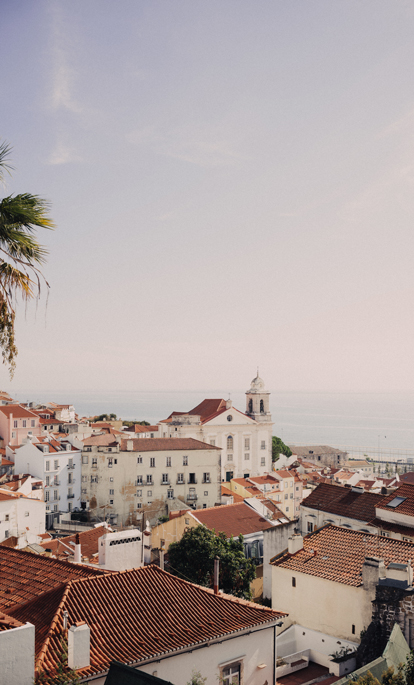
A few suggestions to get the holiday planning process started

Swap the Algarve’s Brit-packed beaches for charming fishing villages, hidden bays and nature reserves on a holiday organised by our passionate Portugal team. We’ve done the hard work for you, getting under the skin of Lisbon, the Duoro Valley, the Azores and more, scouting out the best experiences and properties. Whether you’re after olive oil tasting, hiking routes in Rota Vicentina or a woodland lodge at Furnas Lake, we’ve got you covered. If questions spring to mind while in the country, fear not. Our knowledgeable guides and Concierges will be on hand to answer burning curiosities, like where to find the best pastéis de nata.
ENQUIRE NOWDiscover different ways to explore Portugal
Practical advice and inspiration to help you prepare for your holiday
Leave Portugal planning in the hands of our clued-up travel consultants. With an ex-Lisbon resident and a Portuguese native on our team, we know all about hidden gems straight from the horse’s mouth (a mouthwatering visit to Lisbon’s Campo de Ourique market, anyone?). For additional on-the-ground knowledge, our helpful Concierges are jam-packed with tips, from picturesque stop-offs during road trips to helping hunt down lost luggage. You can even live like a local alongside our guides, who will tailor tours to your taste, be it art, food or history.

UNESCO-listed cities, avant-garde architecture and a lively Latin atmosphere – there are many reasons to love Portugal. Even away from the cities, in the traditional villages and towns, you will find bustling streets, al-fresco dining and, everywhere you look, people enjoying the simple pleasures of outdoor life. Head to the old docks of Lisbon where trendy new restaurants and clubs entice with late-night entertainment or head over to the country's second city, Porto, for a more laid-back scene and as a staging post to the beautiful Douro Valley, home to chic boutique hotels and many of Portugal's finest - and hugely under-rated - winemakers. Meanwhile, the long and tapering coastline pulls in people from across the world appealing to surfer dudes, sun-worshippers and families alike. A lot of this coastline forms part of the Alentejo, straddling the entire country from just south of Lisbon to the Algarve in the south and full of beautiful cork oak forests, elegant wine estates, miles of deserted beaches and the achingly hip beach town of Comporta.
When in Portugal, be sure to try the sparkling sharp white wine of Vino Verde - especially good when chilled and paired with fabulously fresh seafood. You'll quickly learn while visiting Portugal, that this is a country that truly takes pleasure in its food. From brilliant bistros to tapas tastes, and not to mention the must-try pastel de natas (Portuguese custard tarts) that deliver a lip-smacking hit of sugary sweetness you won't be able to get enough of. Boutique charm can be found across Portugal with its array of historic hotels and quirky accommodations from convents and castles to magnificent monasteries.
Meanwhile, out in the Atlantic, Madeira enjoys a mild, sub-tropical climate that has been likened to 'eternal spring'. Once seen as a destination for senior citizens only, Madeira is shedding its fusty image, and the island's climate and landscapes make it ideal for all kinds of outdoor pursuits. As an addition to your luxury holiday itinerary, we can arrange the following methods of proving just how youthful and vigorous you are, including trekking, mountain-biking, paragliding, rock-climbing, surfing, windsurfing, sailing and diving. On the subject of diving, the islands of the Azores - another Portuguese possession - are generally agreed to boast the best diving anywhere in Europe.
Weekend breaks are perfect for dipping your toe into lively Lisbon and pretty Porto. For those who have a week or more to play with, consider renting a car and taking the route from Porto down to Lisbon, combining chic city breaks with a beach extension. Blend a seaside stay with cultural discovery around the Lisbon coast, or opt for a sand and sea escape along the stunning coastal resorts of the Algarve. Don’t leave without sleeping in bliss at the charm of a pousada or parador at least once. Families will love surfing on some of the perfect beach breaks along the Atlantic coast, where the younger generation can learn to surf properly, and hopefully tire themselves out come evening.

Our team of destination experts will get to know you and your unique requirements for your holiday

We work with you to build an ultra-personalised holiday itinerary with your choice of accommodation, experiences and activities

All of our holidays include little extras designed to make a big difference to your trip, from fast-tracking you through airport check-in and security to our network of local Concierges